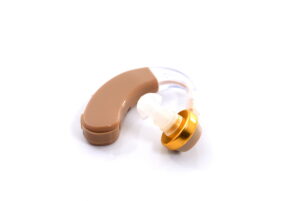Could That Ringing Be Tinnitus?
Oliver’s elderly dad, Samuel, had been having some noticeable trouble with his hearing. He frequently asked people to repeat themselves or misunderstood what was being said. He also complained that he could hear a high-pitched whine from time to time. Oliver finally convinced Samuel to see a doctor about his hearing. He was surprised to learn the ringing in his father’s ears was a symptom of his hearing loss and was called tinnitus.

Elderly Care Villa Hills KY – Could That Ringing Be Tinnitus?.
Tinnitus Basics
Tinnitus isn’t exactly a condition itself. Instead, it is usually a symptom of another condition. It’s fairly common, affecting between 15 and 20 percent of people. It’s rarely a sign of a serious problem, but it can get worse as a person gets older. It can also be improved with treatment.
Tinnitus is usually a symptom of things like age related hearing loss, an injury to the ear, or a problem with the circulatory system. Sometimes tinnitus happens because of injuries to the tiny hairs found in the inner ear. The hairs move with sound waves, which causes an electrical impulse to be sent to the brain through the auditory nerve. Sometimes those hairs break off or get bent. That results in random and erroneous signals being sent to the brain. These signals result in tinnitus.
Symptoms of Tinnitus
People with tinnitus hear sounds that others do not. They tend to describe them in different ways. Some words commonly used to describe tinnitus are:
- Ringing.
- Buzzing.
- Hissing.
- Humming.
- Clicking.
- Roaring.
- Whistling.
- Chirping.
- Pulsing.
- Static.
The sounds can come and go or be constant. Sometimes they are perceived in one ear and sometimes in both. They can also vary in volume. Many people say they notice the sound more when it is quiet or at night.
What Can Be Done at Home to Reduce Tinnitus?
If your aging relative is experiencing tinnitus, they should certainly see a doctor as there are treatments available. In addition, they can take some steps at home to lessen the problem, such as:
Sound Therapy: For some people, having background noise can help make tinnitus less noticeable. Sound therapy can be in the form of white noise, background music, or any other sound the senior finds pleasant.
Wear Hearing Aids: Hearing aids can help with tinnitus because they amplify environmental sounds, shifting the focus from the tinnitus sound to other noises.
Avoid Irritants: Certain things can make tinnitus worse, such as loud sounds, caffeine, and nicotine.
Reduce Stress: Because stress has been shown to increase tinnitus, finding ways to manage stress can be helpful.
Elderly care can assist with managing tinnitus at home. If the older adult’s doctor has prescribed medication, an elderly care provider can remind the older adult to use it. In addition, an elderly care provider can remind the older adult to put their hearing aids in and can also help them with things like changing hearing aid batteries and keeping the aids clean. Elderly care is also an excellent way to reduce stress in an older adult’s life since having their help can make your aging relative feel safer and offer the assistance they need to manage health conditions and their homes.
Sources: https://www.mayoclinic.org/diseases-conditions/tinnitus/symptoms-causes/syc-20350156
https://www.webmd.com/a-to-z-guides/understanding-tinnitus-basics
https://www.medicalnewstoday.com/articles/156286.php
https://www.mayoclinic.org/diseases-conditions/tinnitus/diagnosis-treatment/drc-20350162
If you or an aging loved one is considering hiring Elderly Care Services in Villa Hills KY, please contact the caring staff at Queen City Elder Care today. Serving Cincinnati and Surrounding Communities. Call Us Today (513) 510-4410.
- Winter Safety Tips for Seniors - November 17, 2022
- Fun Fall Activities for Seniors In Cincinnati, OH - October 3, 2022
- National Senior Citizen Day - August 16, 2022

